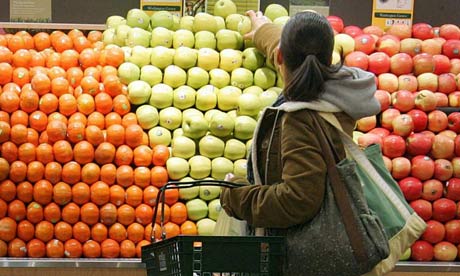
Everyone knows health food = expensive
"University of Washington researchers found when they compared the prices of 370 foods sold at supermarkets in the Seattle area. Calorie for calorie, junk foods not only cost less than fruits and vegetables, but junk food prices also are less likely to rise as a result of inflation."
When you can eat more calories for less money, especially when you are strapped for cash, why would you buy healthier foods? Possibly because of the way that a healthy lifestyle saves you in the long run, as your risk for obesity decreases and along with that your risk for chronic diseases drop as well.
This is a comforting fact considering chronic disease facts such as:
- The medical care costs of people with chronic diseases account for more than 75% of the nation’s $2 trillion medical care costs.
- The direct and indirect costs of diabetes is $174 billion a year.
- Each year, arthritis results in estimated medical care costs of nearly $81 billion, and estimated total costs (medical care and lost productivity) of $128 billion.
- The estimated direct and indirect costs associated with smoking exceed $193 billion annually.
- In 2008, the cost of heart disease and stroke in the U.S. is projected to be $448 billion.
- The estimated total costs of obesity was nearly $117 billion in 2000.
- Cancer costs the nation an estimated $89 billion annually in direct medical costs.
- Nearly $98.6 billion is spent on dental services each year.
There are lots of great ideas to help you reduce food costs without losing nutrition. Divine Caroline provides her list of 20 healthy food items for under $1, a deal you can't beat and with some items that aren't typical of the American diet, you can get creative with your cooking.
Rebecca Pratt also details some ways you can eat healthy on a budget, such as:
- Drink lots of water (at least 8 cups a day)
- Limit salty and sugary foods
- Avoid eating many foods that are high in saturated fats
- Make “variety” the watchword of your eating
- Set aside a regular block of time to plan your meals (include snacks)
- Stock up on healthy, but cheaper items-- such as beans, lentils, pastas, rice
- You can cook large quantities and then freeze extras
- Buy in bulk, but only things that make sense, vegetables or fruits that will go bad quickly are not the best bulk item
Now it's your turn, what are ways that you find to decrease the cost of your groceries without decreasing your health?

